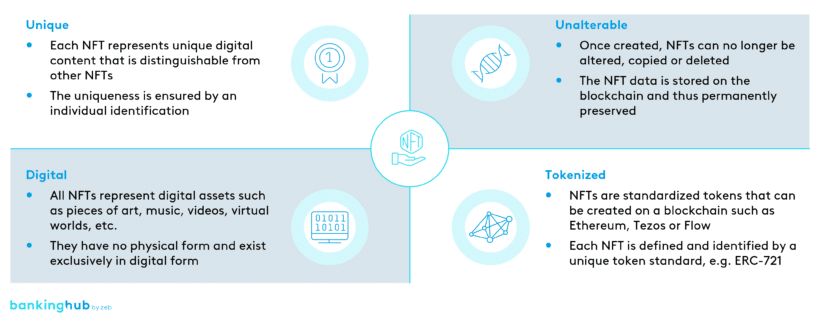What is an NFT?
A non-fungible token or NFT for short is a unique digital file that is created and verified using blockchain technology. Unlike cryptocurrencies such as Bitcoin or Ethereum, which are fungible, i.e. interchangeable, NFTs represent unique information or assets.
NFTs have gained a lot of attention recently, especially in the realm of digital art, but they can also be used for other digital goods such as music, videos, trading cards, virtual properties in video games, and more.
Characteristics of NFTs

Each NFT contains metadata that confirms its uniqueness and authenticity and allows ownership and property rights to be tracked.
Since NFTs are based on blockchain technology, transactions and ownership claims are recorded on a decentralized and transparent network. This approach ensures that an NFT’s ownership is always clear and traceable.
The NFT revolution
From a regulatory perspective, NFTs have long been in a gray area, but as soon as the so-called Markets in Crypto-Assets Regulation (MiCAR) comes into force, they will be subject to their own regulatory framework. However, the MiCAR will only cover NFTs as series of similar tokens, which in turn excludes “truly” unique NFTs.




